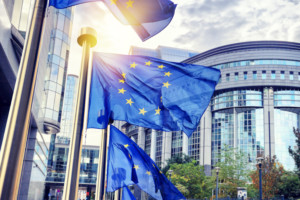
On 11 December 2019, the European Commission published the long-awaited Communication on the European Green Deal, which highlights the new EU leadership’s climate and sustainability ambitions. This includes ambitious measures directly tackling green house gas emissions reduction targets, carbon pricing and the decarbonisation of the energy system. Besides, the Commission foresees the adaption of a new Industrial Strategy closely linked to a new Circular Economy Action Plan. “This roadmap marks Europe’s way to become a resource-efficient and competitive economy with zero net green house gas emissions by 2050. We see our industry in a crucial role to help achieving the deal”, comments EUBP Chairman François de Bie the Green Deal.
The crucial role of bioplastics derives from its importance for the plastics industry. As a key driver for innovation, bioplastics have the potential to enable the whole industry to adapt to the deal’s objectives. The new Circular Economy Action Plan, which will be completed in March 2020, includes a strong focus on the plastics sector. A “sustainable products” policy will be presented, which focuses on the support of a circular design for all products as well as on prioritizing reduction and reuse of materials over recycling. In the field of packaging, the Commission plans to develop requirements to ensure that all packaging placed on the market is reusable or recyclable in an economically viable manner by 2030. A regulatory framework for bio-based and biodegradable plastics and further measures on single-use plastics are also foreseen. “In order to reach circularity and fossil-decarbonisation formulated in the concept, it is highly important to create a strong link between bioeconomy and circular economy”, says François de Bie.
“Bio-based plastics can make a strong contribution as they use sustainably sourced biomass as feedstock for their production. They help diminish the dependency on fossil resources and reduce the emission of green house gases. Mechanical and chemical recycling of those bio-based plastics further adds to the reduced environmental footprint of these products. What is more biodegradable and compostable plastics can help to increase circularity of organic waste and to close the nutrient cycle which is equally important to closing the material cycle”, de Bie added.
In its aim for waste avoidance and minimisation, the Green Deal also includes the plan to come forward with a new legislation including targets and specific measures to address over-packaging and waste generation. As part of the legislation, it considers measures on mandatory recycling content. The push for more high quality recycled plastics in products deserves support. However, additional pathways of material innovation, other than use of recycled content, should be equally supported. Achieving to use less material or showing better barrier properties to e.g. prolong the shelf-life of food, innovative materials adhere to circular economy goals such as reduction of material use as well as food waste and thereby support implementing the Green Deal. Mandatory provisions of recycled content should not hamper other innovative pathways.
As the Green Deal is designed to being updated in the course of the implementation process, its final shape is not yet clear. To make the deal become reality, the joint engagement of all stakeholder groups is required. The bioplastics industry is looking forward and willing to provide strong support.